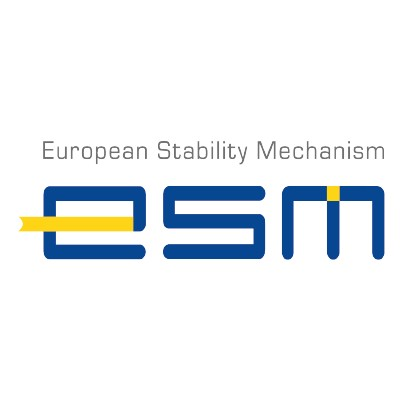TikTok's Lite Rewards Program Bows Out in the EU: A Digital Compliance Tale
August 6, 2024, 9:44 am

Location: Belgium, Brussels-Capital, Brussels
Employees: 1001-5000
Founded date: 1958

Location: United States, California, Santa Monica
Employees: 5001-10000
Founded date: 2016
Total raised: $300K
In a world where social media reigns supreme, TikTok has found itself at a crossroads. The platform, known for its catchy dances and viral challenges, has decided to pull the plug on its TikTok Lite rewards program in the European Union. This decision comes as a response to the EU's stringent Digital Services Act (DSA), a set of regulations designed to protect users online.
The TikTok Lite rewards program allowed users to earn points for engaging with content. Watching videos, liking posts, and inviting friends could translate into real-world rewards. It was a gamified experience, enticing users to spend more time on the app. But this allure came with a catch. The European Commission flagged the program for its potential mental health risks, particularly for children.
The DSA aims to create a safer online environment. It holds platforms accountable for their impact on users. TikTok's rewards program, while engaging, raised red flags. The EU's investigation began in February, highlighting concerns about the program's effects on mental well-being.
TikTok's decision to withdraw the rewards program is a significant move. It marks the first enforcement action under the DSA. The European Commission confirmed that TikTok would not be allowed to launch a similar program in the future. This is a clear message: compliance is non-negotiable.
The implications of this decision are profound. TikTok has faced scrutiny before. The platform has been in the EU's crosshairs for various reasons, from data privacy to content moderation. The DSA adds another layer of complexity. It requires platforms to assess risks and take action to mitigate them.
The EU's focus on mental health is not new. Concerns about the impact of social media on young users have been growing. The TikTok Lite rewards program was seen as a potential contributor to unhealthy habits. The gamification of social media can lead to excessive screen time and addictive behaviors.
By shutting down the rewards program, TikTok is attempting to align itself with the EU's vision for a safer digital landscape. This move may also be a strategic play. The platform is keen to maintain its foothold in Europe, a lucrative market. Compliance with regulations can help avoid hefty fines and further scrutiny.
The decision also reflects a broader trend in the tech industry. Companies are increasingly facing pressure to prioritize user safety. The DSA is part of a wave of regulations aimed at holding tech giants accountable. The EU is leading the charge, setting a precedent for other regions to follow.
TikTok's challenges in the EU are not isolated. The platform has faced similar issues in other markets, including the United States. Concerns about data privacy and user safety are universal. As TikTok navigates these waters, it must balance user engagement with regulatory compliance.
The withdrawal of the rewards program is a step in that direction. It shows that TikTok is willing to adapt. However, the platform must continue to innovate. Users crave engagement, and TikTok's success hinges on its ability to provide it without compromising safety.
The future of TikTok in the EU remains uncertain. The platform has a loyal user base, but regulatory hurdles could impact its growth. The DSA is just the beginning. As the EU continues to refine its digital regulations, TikTok will need to stay ahead of the curve.
In conclusion, TikTok's decision to withdraw its Lite rewards program is a significant moment in the ongoing saga of social media regulation. It highlights the tension between user engagement and safety. As the digital landscape evolves, platforms must adapt. The DSA is a wake-up call for all tech companies. Compliance is not just a box to check; it's a fundamental aspect of doing business in today's world.
TikTok's journey in the EU serves as a cautionary tale. The platform must navigate a complex web of regulations while keeping its users engaged. The stakes are high, and the path forward is fraught with challenges. But with each step, TikTok is learning. The digital age demands responsibility, and TikTok is beginning to embrace it.
The TikTok Lite rewards program allowed users to earn points for engaging with content. Watching videos, liking posts, and inviting friends could translate into real-world rewards. It was a gamified experience, enticing users to spend more time on the app. But this allure came with a catch. The European Commission flagged the program for its potential mental health risks, particularly for children.
The DSA aims to create a safer online environment. It holds platforms accountable for their impact on users. TikTok's rewards program, while engaging, raised red flags. The EU's investigation began in February, highlighting concerns about the program's effects on mental well-being.
TikTok's decision to withdraw the rewards program is a significant move. It marks the first enforcement action under the DSA. The European Commission confirmed that TikTok would not be allowed to launch a similar program in the future. This is a clear message: compliance is non-negotiable.
The implications of this decision are profound. TikTok has faced scrutiny before. The platform has been in the EU's crosshairs for various reasons, from data privacy to content moderation. The DSA adds another layer of complexity. It requires platforms to assess risks and take action to mitigate them.
The EU's focus on mental health is not new. Concerns about the impact of social media on young users have been growing. The TikTok Lite rewards program was seen as a potential contributor to unhealthy habits. The gamification of social media can lead to excessive screen time and addictive behaviors.
By shutting down the rewards program, TikTok is attempting to align itself with the EU's vision for a safer digital landscape. This move may also be a strategic play. The platform is keen to maintain its foothold in Europe, a lucrative market. Compliance with regulations can help avoid hefty fines and further scrutiny.
The decision also reflects a broader trend in the tech industry. Companies are increasingly facing pressure to prioritize user safety. The DSA is part of a wave of regulations aimed at holding tech giants accountable. The EU is leading the charge, setting a precedent for other regions to follow.
TikTok's challenges in the EU are not isolated. The platform has faced similar issues in other markets, including the United States. Concerns about data privacy and user safety are universal. As TikTok navigates these waters, it must balance user engagement with regulatory compliance.
The withdrawal of the rewards program is a step in that direction. It shows that TikTok is willing to adapt. However, the platform must continue to innovate. Users crave engagement, and TikTok's success hinges on its ability to provide it without compromising safety.
The future of TikTok in the EU remains uncertain. The platform has a loyal user base, but regulatory hurdles could impact its growth. The DSA is just the beginning. As the EU continues to refine its digital regulations, TikTok will need to stay ahead of the curve.
In conclusion, TikTok's decision to withdraw its Lite rewards program is a significant moment in the ongoing saga of social media regulation. It highlights the tension between user engagement and safety. As the digital landscape evolves, platforms must adapt. The DSA is a wake-up call for all tech companies. Compliance is not just a box to check; it's a fundamental aspect of doing business in today's world.
TikTok's journey in the EU serves as a cautionary tale. The platform must navigate a complex web of regulations while keeping its users engaged. The stakes are high, and the path forward is fraught with challenges. But with each step, TikTok is learning. The digital age demands responsibility, and TikTok is beginning to embrace it.
